Iowans abroad: Students leave Charles City behind for spring break
By Kate Hayden, khayden@charlescitypress.com
It’s not often Charles City students find a giant Hercules beetle chilling out on their arms.
They don’t usually zip-line through a rainforest’s canopy, explore a national volcanic park, or try strange fruits in a food stand where they speak little or none of the native language.
But over spring break, 33 Charles City High School students had those chances on a nine-day trip to Costa Rica with American Humanities teacher Rob Pittman. The beetle pooped on Pittman’s arm, by the way.
“It’s so big, you felt it,” he said.
The best souvenirs are memories.
Pittman organizes international spring break trips every two years for juniors and seniors, and found this year’s destination inspiration from ongoing free trade discussions between the U.S. and Costa Rica.
The trip, which Pittman organized with Education First tours, focused on local experiences in the country, and connected students with local high schoolers for a short time to hang out and play games.
“I had never, myself, been to Central America,” Pittman said. “I also wanted to have a little more Spanish language influence … (Spanish students) got to do a lot of good, hard work in communicating in Spanish and tripping up, being successful and not being successful.”
“It was some failure but totally tinged with tons of success,” he added.
It was a first trip abroad for some students, and a first trip to the rainforest for many of those who had already traveled.
“You grow up and you see pictures of the rainforest in all the books and stuff. It doesn’t really hit you that it actually exists until you go there, like, ‘wow,'” senior Ivan Marth said. “‘I’m actually in the rainforest and it feels pretty cool.'”
The group started on the east coast in San Jose and soon found themselves in Tortuguero. The town’s population is less than 1,000 people, and a hotel owner was able to set up time for the Charles City teenagers to meet their Costa Rican peers.
“We spent an afternoon and a night where we spent time with local high school students,” Pittman said. “We had a dance lesson with them. Part of it was salsa mixed with reggae dancing, which was the influence of the Caribbean islands.”
Junior Carter Klatt said, “I didn’t really know how much I knew about the Spanish language until I got down there and I was able to speak it pretty well.”
Senior McKenzie White takes German classes, but even she got to practice her foreign language skills with tourists who were visiting some of the same sites as the Charles City students.
“It was really interesting meeting people vacationing from Germany and having small conversations with them in German, in Costa Rica, a Spanish-speaking country,” White said.
Students made historical connections as they toured a banana shipping station and saw workers box up produce to ship to the U.S. Those workers make $3-4 a day — “That’s why our bananas are 35 to 40 cents a pound,” Pittman said. “The looks on their face is like, ‘holy moly.'”
Students also visited an organic farm and saw the similarities, and differences, between farming in Costa Rica and the Midwest.
“Living in a farm state, and I’ve never milked a cow before. But once I went out of the country, then I milked a cow for the first time. That was a crazy experience,” White said.
Senior Caroline Groesbeck lives on a dairy farm, and was interested in how Costa Rican farmers used the resources available from cows to affect the rest of their daily lives.
“They use the manure to make methane gas for the kitchen,” Groesbeck said. “The way they set up the farm was completely different. It’s very much rows for us, and they had it like, ‘this plant is growing next to this plant, because this plant thrives next to this plant.'”
With a jam-packed adventure agenda — snorkeling, whitewater rafting, visiting waterfalls, volcanos and horseback riding — students were able to see both the tourism and the local sides of the nation.
“It brings in the culture of the country intensely to the students,” Pittman said.
“Because they’re in a different place, they don’t care what people think, so they try new stuff,” he said. “With a set group of people, they include people that they wouldn’t normally include in high school. … You grow in maturity when you travel.”
Marth said, “If I grew so much as a person just in that one trip, I think going around the world, I’d just get to know myself a little bit better. I want to make new friends from different countries. I want to try to get pen pals so we can stay updated. I think that’d be really cool.”

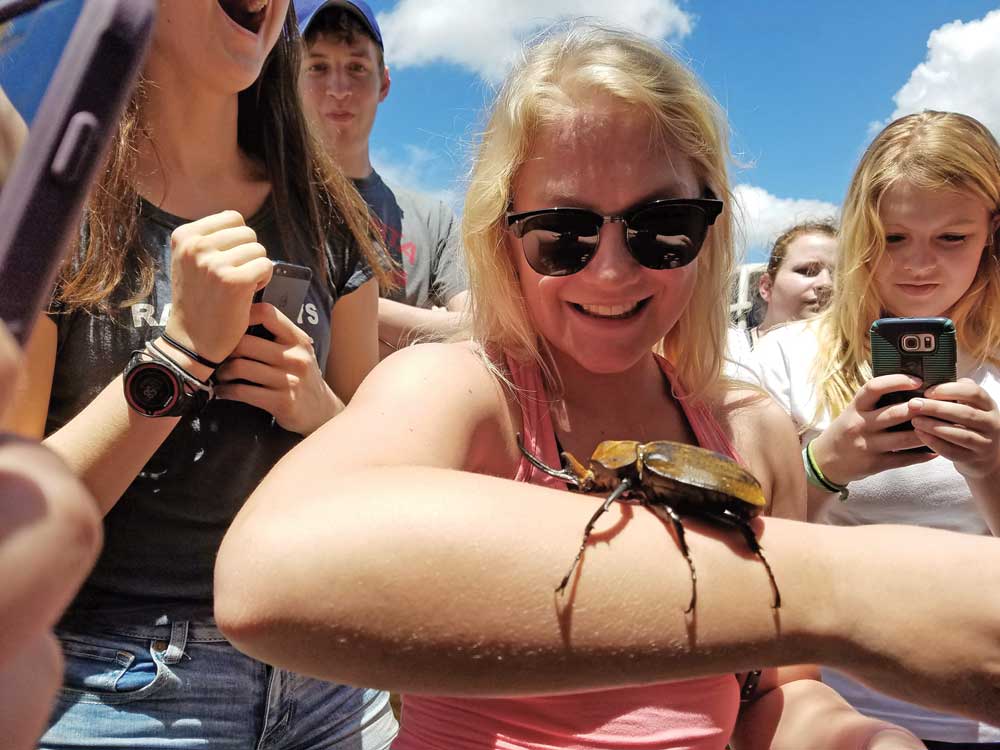
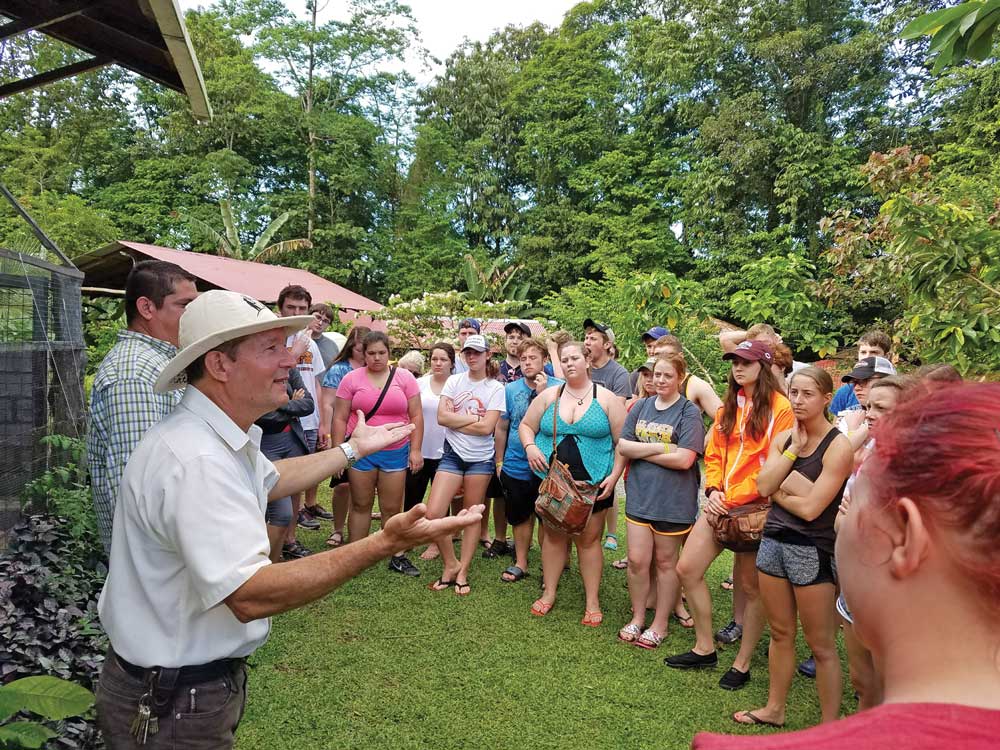
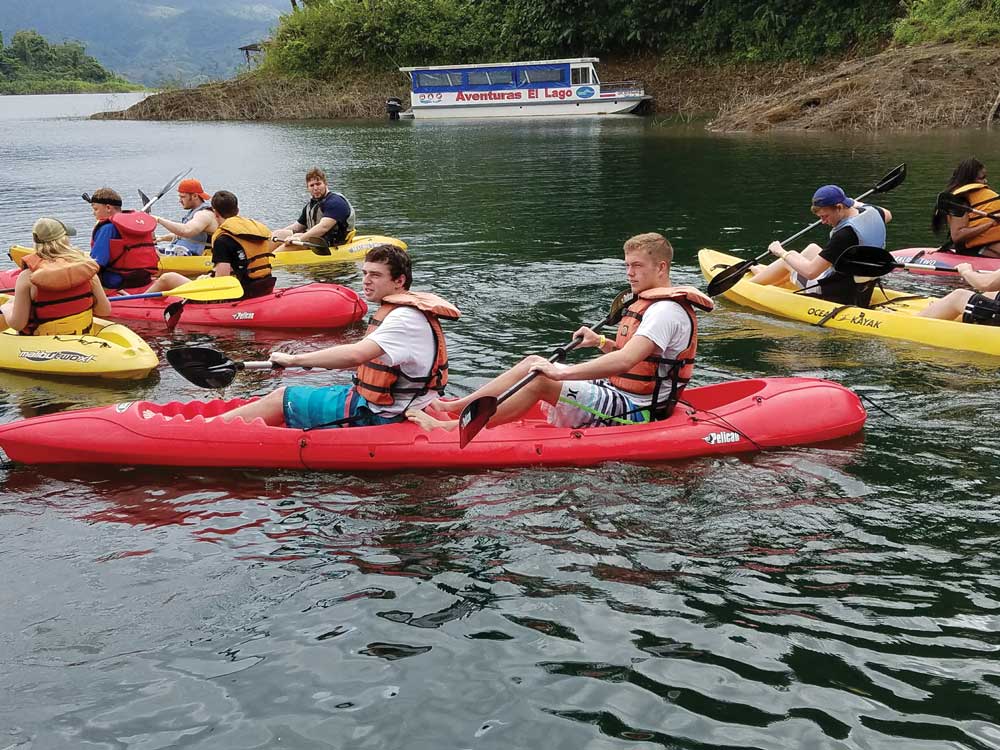
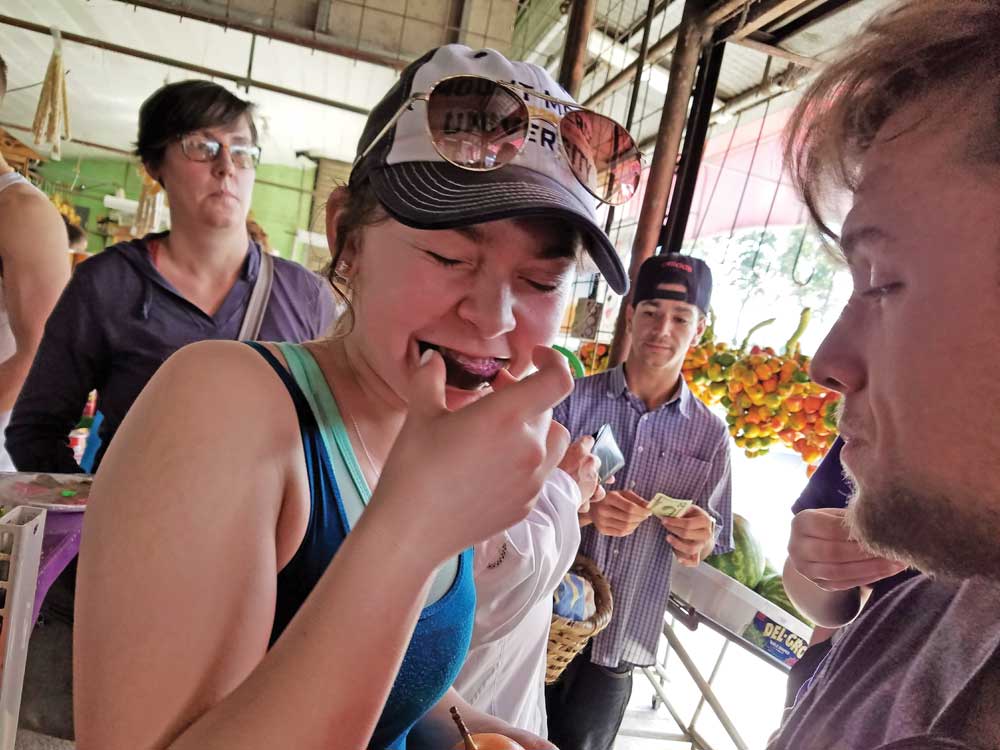
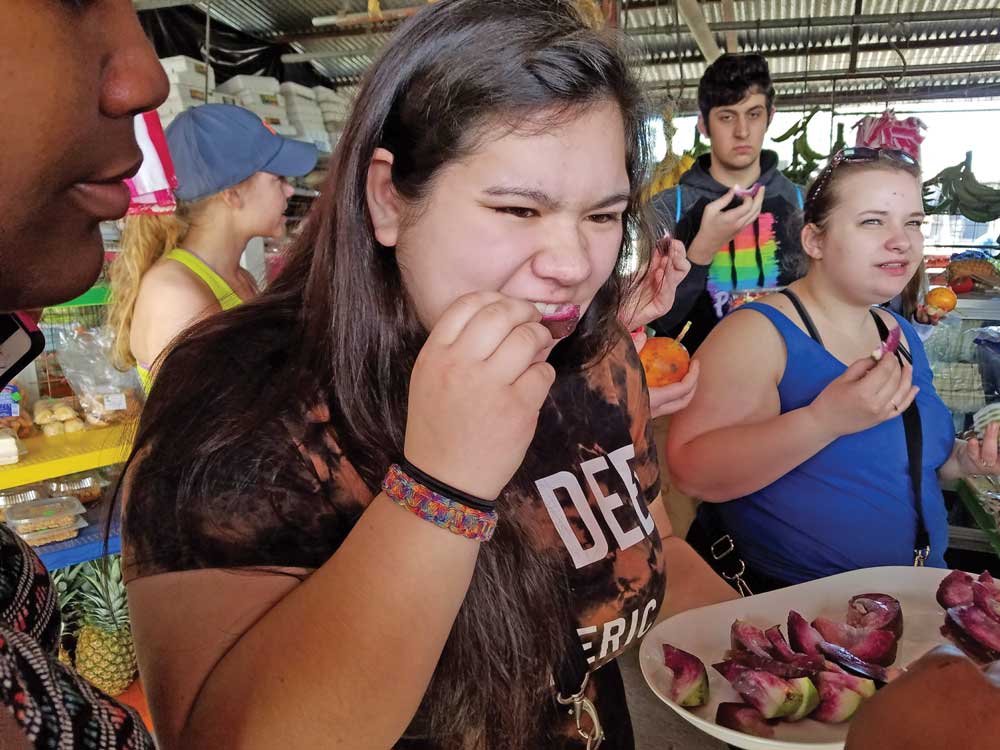

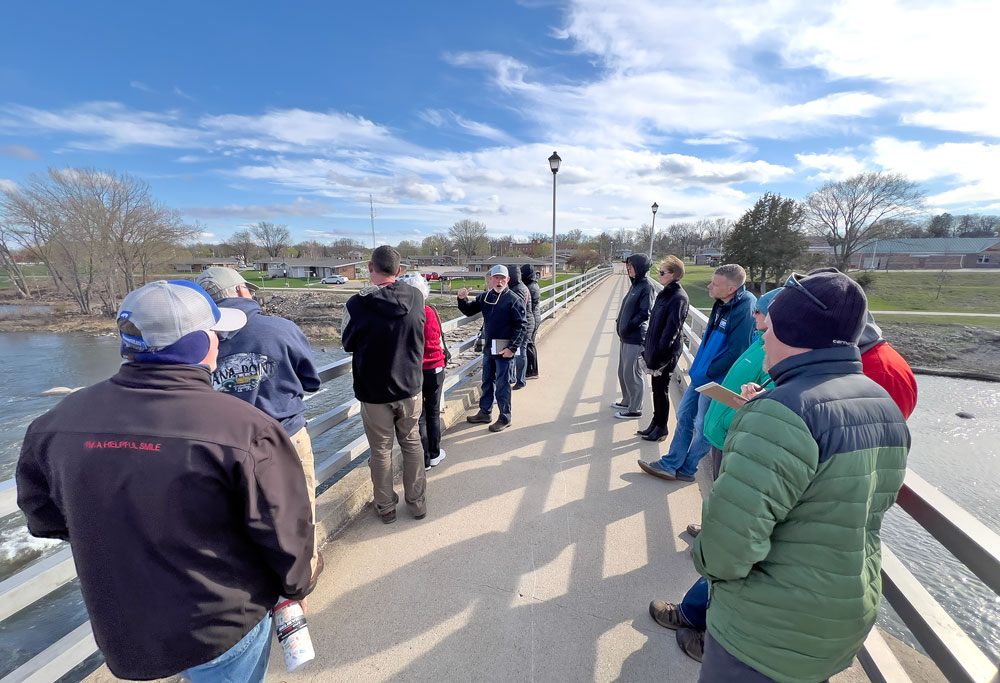
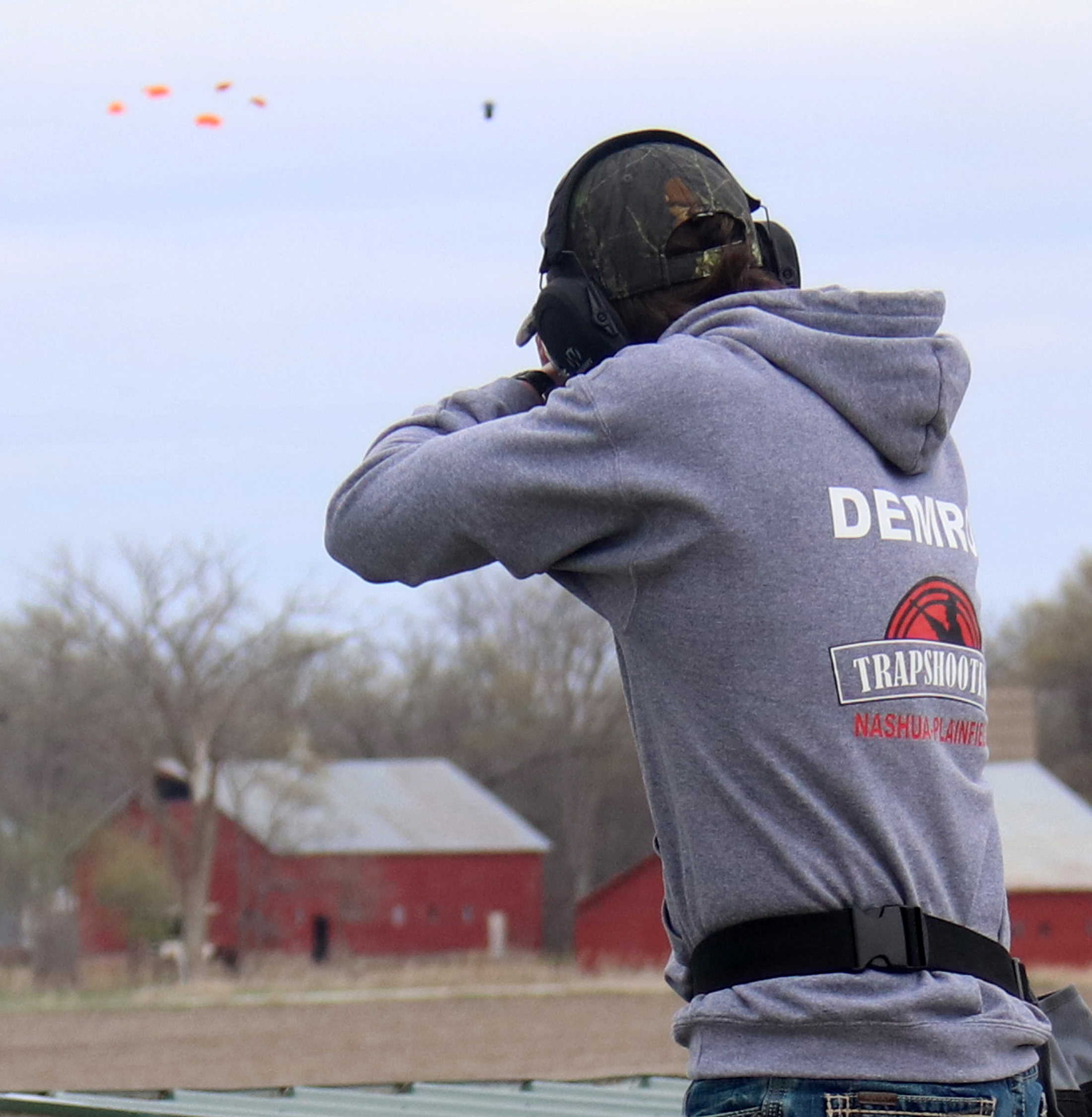
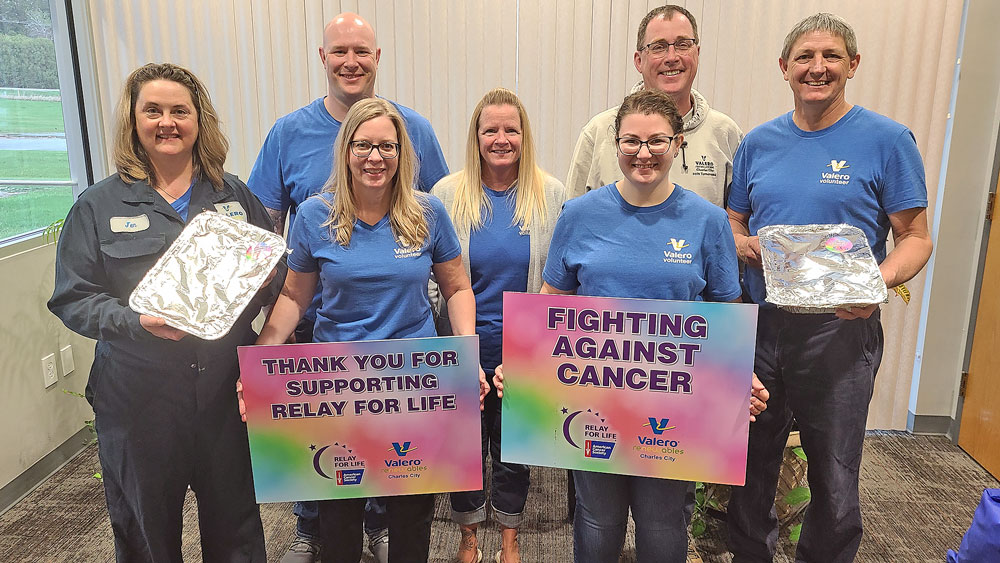


Social Share